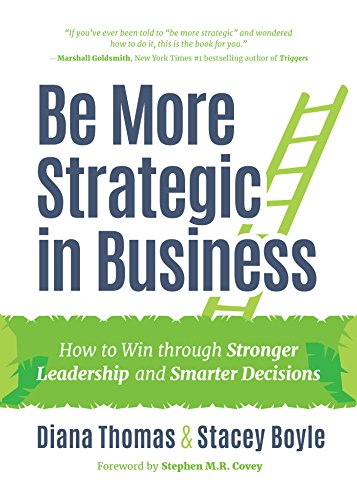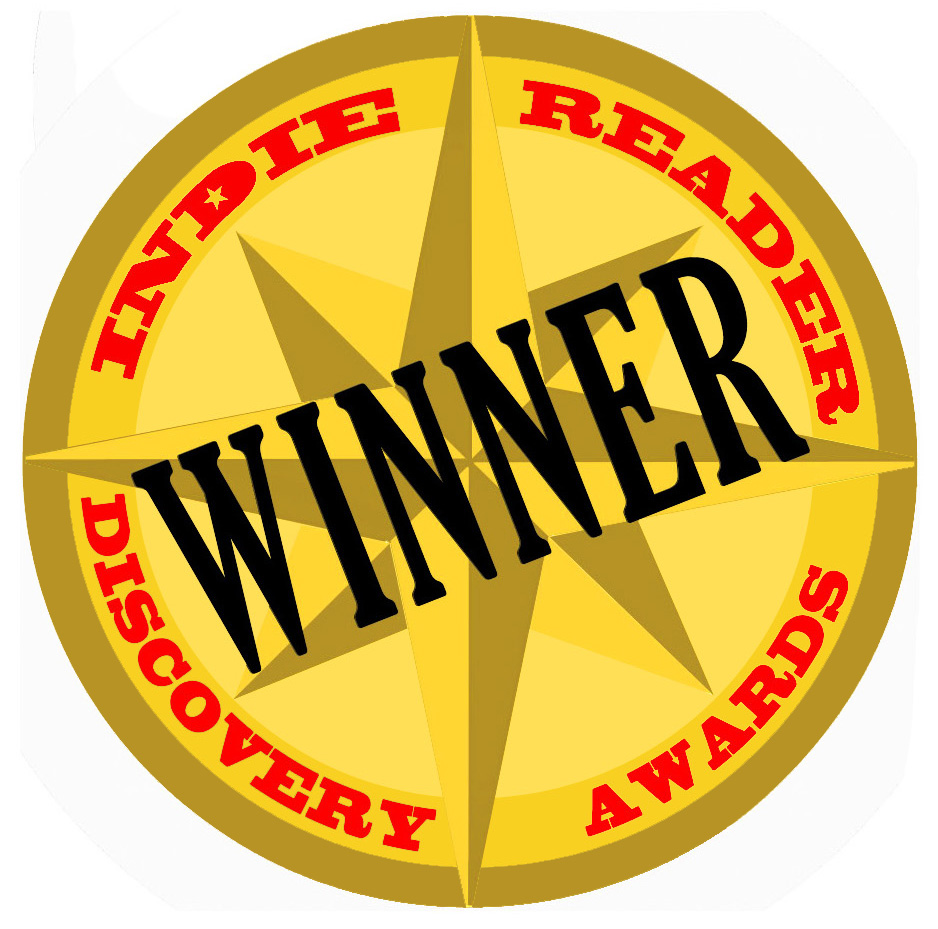Be More Strategic in Business: How to Win through Stronger Leadership and Smarter Decisions was the winner in the Best First Book/Non-Fiction category of the 2019 IndieReader Discovery Awards, where undiscovered talent meets people with the power to make a difference.
Following find an interview with authors Diana Thomas and Stacey Boyle.
What is the name of the book and when was it published?
Be More Strategic in Business: How to Win through Stronger Leadership and Smarter Decisions. Published August 15, 2018
What’s the book’s first line?
When we first met each other, back in 2010, we had no idea that the needs driving our initial meeting would eventually turn into a process for you, our leader-reader, to cultivate your own strategic leadership capabilities and then apply that skill set throughout your organization.
What’s the book about? Give us the “pitch”.
Strategic leadership is essential to business success: Strong leaders are those who successfully navigate a great shift: from tactical doer to strategic leader. Regardless of your industry, line of business, or sector, your organization desperately needs strategic leaders. A strategic leader is tuned in to the needs of the business, understands how his or her actions impact corporate objectives, and uses data to make smart decisions. Whether you’re leading a department team or running your own company, a strategic leader clearly propels business performance.
Building a ladder to strategic leadership: Stephen R. Covey famously explained strategic leadership via the metaphor of workers clearing a jungle. The strategic leader was able to climb a tree and tell everybody they were laboring in the wrong jungle. In this book you will start out on the jungle floor and build a ladder to give you that strategic view over the tops of the trees. You’ll learn how to:
- Develop your strategic skills
- Set meaningful direction
- Build a strategic plan
- Make decisions to win
Proven approach to strategic leadership: You’ll get the training straight from the personal career journeys of two businesswomen who have decades of experience and education. They come together to create a proven approach to understanding the big picture of what your organization is trying to accomplish and how to be an effective leader.
What inspired you to write the book? A particular person? An event?
Through our corporate careers, we have either been told to be more strategic or given that directive to others. Unfortunately, there wasn’t much guidance or advice available on why it was important to be strategic, what being more strategic looked like, or how to actually become a more strategic leader. Across the years, we have become strategic leaders and coached others to do so as well. We saw and heard the need for strategic leadership in many facets of business and decided to send the elevator back down to help others understand the why, what, and how of strategic leadership.
What’s the most distinctive thing about the main character? Who-real or fictional-would you say the character reminds you of?
We are the main characters. We share our wins, lessons learned, mistakes, and occasional embarrassments so the leader-reader can turn them into an opportunity to excel.
What’s the main reason someone should really read this book?
If they have ever been told they need to “be more strategic” or want to take their career to the next level they can learn how to do that in very practical ways following our six-factor model. They can use our Impact Blueprint® to ensure that they are always thinking of and seeing the big picture.
When did you first decide to become authors?
We decided to become authors when Diana retired from McDonald’s corporate and began to expand her coaching business.
Is this the first you’ve written?
Yes, it’s the first book for both of us. Between the two of us, we’ve written many business whitepapers, industry magazine articles, blog posts, published academic research in peer-reviewed journals, master’s theses, and a doctoral dissertation.
What do you do for work when you’re not writing?
Diana is an executive coach and podcaster. She has a consulting practice, Winning Results, LLC. Diana hosts the Talent Champions podcast, which is sponsored by FranklinCovey. She’s a seasoned leader and executive coach who specializes in helping leaders increase their impact, inspire committed followership and engagement, and build strong teams.
Stacey has a human capital analytics consulting practice, Smarter People Planning, LLC. She is a sought-after leader in workforce analytics and management consulting who has built a reputation for groundbreaking work connecting investments in people to critical business outcomes.
How much time do you generally spend on your writing?
We spend most of our time writing industry articles and blogging.
What’s the best and the hardest part of being an indie?
We are always seeking guidance from those who came before us. We are the consummate learners.
Would you go traditional if a publisher came calling? If so, why?
It would depend on the amount of freedom and control we were permitted to have. We like deciding our own futures.
Is there something in particular that motivates you?
This is our opportunity to send the elevator back down. We are both motivated by helping others achieve their goals and vision. Using the jungle metaphor in our book, we are helping others build their ladder to strategic leadership and offer practices to maintain balance atop the ladder.

